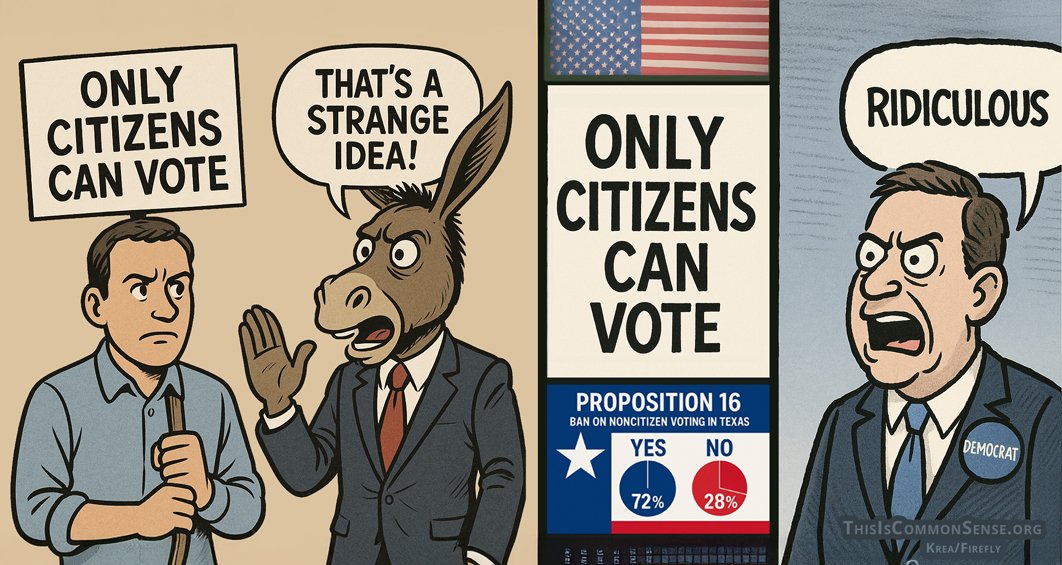Talk about a blowout: a few days ago, Texans overwhelmingly supported Proposition 16 to amend their state constitution to clarify that noncitizens cannot vote in state and local elections in Texas. The vote: Yes, 72%; No, 28%.
Not everybody is happy.
Jeff Forrester, who happens to be running against Rep. Candy Noble, a major sponsor of this very amendment — just a coincidence I’m sure — professes confusion about why anybody would care about this question. He asserts that the state constitution already prohibits noncitizen voting and has flung himself into a major Twitter‑X tussle over the matter with the group I lead, Americans for Citizen Voting.
Per Forrester, the Texas constitution “already states that no one other than U.S. citizens can vote” in Texas elections.
But as we point out, prior to passage of the present amendment, the state constitution only explicitly protected the rights of U.S. citizens to vote. It did not “reserve the right to vote to only [U.S.] citizens.… It didn’t prohibit Dallas from giving the right to noncitizens to vote in local elections.”
Similarly deficient provisions in the constitutions of other states have also failed to prevent cities from allowing noncitizen voting on local matters. Now, with passage of Prop 16, there is no way for noncitizens to legally vote in Texas.
Those who assert that the Prop 16 amendment is pointless protest too much. If it’s so durn redundant, why isn’t the response to this voter-endorsed clarification simply a shrug?
Instead, we get finger-wagging opposition.
Very “mysterious.”
This is Common Sense. I’m Paul Jacob.
Illustration created with Krea and Firefly
See all recent commentary
(simplified and organized)
See recent popular posts









